
Director
Six people recall the languages that cradled their childhoods: Judeo-Spanish or Judeo Arabic, or Judeo-Persian. Today, the languages themselves are dying but they left traces that still work on those who heard them as children.

Director
Seven young people tell their personal stories with the Yiddish language while discussing the life and work of avant-garde Yiddish poets.
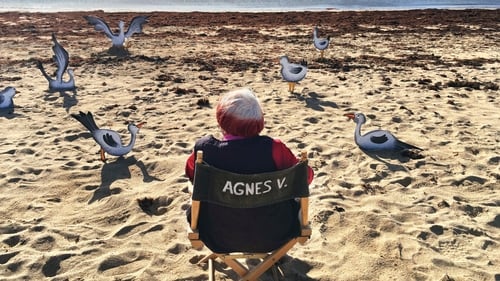
Self
An unpredictable documentary from a fascinating storyteller, Agnès Varda’s last film sheds light on her experience as a director, bringing a personal insight to what she calls “cine-writing,” traveling from Rue Daguerre in Paris to Los Angeles and Beijing.

Director
By taking an interest in sign languages, Nurith Aviv invites us to expand our perception of the human langage. Three generations of deaf and hearing persons, as well as researchers from a specialised laboratory from the university of Haifa make us discover the languages, complex and diverse, that exist today in Israel.

Director
A documentary about brain, his capacities and his poetical aspect using testimonials from researchers around the world.

Director
The film Announcements paints the portraits of seven women reflecting on the same theme. Their starting point is the announcement to Hagar, Sarah and Mary as in the Old Testament, the New Testament and the Koran. Their thoughts spread out and weave a new web, drawing strands from their associations and interpretations of these texts. And by talking about their own history, their personal myths, they work up to subjects such as the birth of image in the Christian world or that of poetry in ancient Greece. Announcements is a film about the movement of thought, the power of words, the secret of the voice, and the seduction of the image.

Director

Director
The film, the second in a trilogy, containing "Misafa Lesafa" (2004) and "Traduire" (2011), deals with what became of Hebrew, the sacred language of the Jews for two millennia, that became a living language on the creation of the State of Israel in 1948. The film continues the reflection begun in the director's previous film, Misafa Lesafa (2004), which films writers and artists recounting the conflicting relationship that they themselves experienced between their parents' language and the Hebrew language.

Director of Photography
Four 12-year-olds—Sharon, Tom, Moishy, and Sophie—prepare for their bar or bat mitzvot.

Director of Photography
A documentary essay on the 1960s women's liberation movement in Germany and it's developments and conflicts through the following decades.

Director
For centuries, Hebrew was a sacred language, a written language of prayer and scripture. But today it is also the language of everyday life in Israel. Nurith Aviv, Israeli writers, musicians, actors and a Rabbi/philosopher from varying countries and ethnic backgrounds discuss the relationship between their mother tongues and Hebrew. Featuring: Aharon Appelfeld, acclaimed for his literary explorations of the Holocaust; actress Jenya (Evgenya) Dodina; Rabbi and philosopher Daniel Epstein; poet Salma-n Musa-lahah; poet and translator Agi Mishol; singer Amal Murkus; poet and Professor of Jewish Thought Haviva Pedaya; and Meir Wieseltier, a member of the early Sixties "Tel Aviv Poets" group.

Director

Director

Director of Photography
Marc Aurel-Straße in Vienna: The last surviving Jewish textile merchant in the former textile district, the Iranian hotel proprietor and the Café Salzgries and its regulars. Between the summer of 1999 and spring 2000, Ruth Beckermann undertook a series of small journeys on and around her own doorstep and investigated her local area with the help of a film crew. This documentary film also gives an insight into the political changes when a far right Party joined the Government coalition in Austria.

Director
Circumcision is not a trivial act. For those parents, mostly "mixed" couples from different religious origins, a choice has to be made before the birth of their children, whether religion has a role in their lives or not.

Narrator (voice)
Circumcision is not a trivial act. For those parents, mostly "mixed" couples from different religious origins, a choice has to be made before the birth of their children, whether religion has a role in their lives or not.

Director of Photography
Images of Egypt: prolonged tracking shots through the streets of Cairo, cafes, bazars, hotels and gardens, footage of the desert and the sea. Ruth Beckermann is on the trail of Empress Elisabeth of Austria ("Sissi"), who travelled the world restlessly and was in Egypt incognito one hundred years earlier. Since Elisabeth refused to be photographed after the age of 31, she inspires projections and fantasies.

Director
Directed by Nurith Aviv.

Director of Photography
Proud and determined, the hunter set out, leaving behind his village ravaged by a terrible drought. All the villagers came out to wish him well, and everyone gave what he could: an egg, a handful of peanuts or a few kola nuts... As in the folktale, Sobgui, a former computer programmer who now drives a "clando" cab in Douala, flees to Europe to escape a life in Cameroon which has become unbearable. In Cologne (Germany), Sobgui joins a community of African emigrants. Most are hard-working and ambitious people. Sobgui begins a love affair with Madeleine, a German political activist who encourages Sobgui and his friends to return home and fight for change.

Director of Photography
Psychiatric patients refer to themselves as survivors, victims, former inmates, consumers, or users. "Nerve" potraits four persons from Vienna and New York expressing different positions and experiences of former psychiatric patients.

Cinematography
"Vivian Ostrovsky's intriguing film focuses on the French dancer- choreographer Mathilde Monnier, now the director of the National Choreographic Center of Montpellier. Like the dance film it is paired with, M.M.in MOTION exhibits a surrealist sensibility but the mood is playful and the movements full of quirky and ironic juxtapositions" (Film Society of Lincoln Center)

Director of Photography
In this documentary road movie, Austrian filmmaker Ruth Beckermann records the diverse views and activities of Israelis and Arabs as she travels along the route from Tel Aviv to Jerusalem.

Director of Photography
The life of the Tibetan people, forty years after the Chinese invasion. Filmed in Amdo and Kham, regions forgotten by the world and absolutely forbidden to filmmakers and journalists until now, this is an exceptional document on the most mysterious civilization of humanity, now threatened with death.

Cinematography
Two childhood friends who have not seen each other for a long time decide to meet again. They talk and look for what could have caused their estrangement: words pronounced in a certain way, an intonation etc. Very quickly, an argument begins and turns into a settlement of accounts.

Director of Photography
Two interconnected stories in the 1930s, one set in Berlin, the other in Palestine: Mania Vilbouchevich Shohat (1880-1961), called Tania, a Russian Jew and revolutionary, goes from Minsk to Palestine to live on a collective. She promotes feminism and laments a shift in the men from self-defense to aggression. Her friend, Else Lasker-Schuler (1869 - 1945), expressionist poet and German Jew, is in Berlin, writing, caring for her son, watching Hitler's movement take power. She goes to Jerusalem and imagines a park for Arab and Jew. Her poems, voiced from within, capture her experience. The film meditates on the violence at the root of Israel's birth: of the Nazis and of the Zionists.

Director of Photography
The 1986 Eurythmics tour of Japan. It is the end of the world tour during which Annie Lennox (vocals) and Dave Stewart (guitar) promote their latest album "Revenge". It is also, between concerts, the shock of discovery: a world of sounds as cultivated by the Japanese, both brutally technological and highly refined traditional expressions.
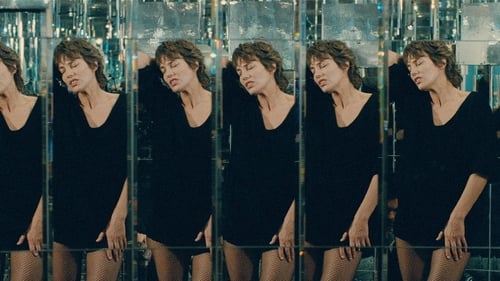
Director of Photography
The interests, obsessions, and fantasies of two singular artists converge in this inspired collaboration between Agnès Varda and her longtime friend the actor Jane Birkin. Made over the course of a year and motivated by Birkin’s fortieth birthday—a milestone she admits to some anxiety over—Jane B. by Agnès V. contrasts the private, reflective Birkin with Birkin the icon.

Director of Photography
In his film, Josef Aichholzer observes the search for the perfect body, the golden calf of the leisure society: Meditation, sport, medicine or gene technology may be used but the goal remains the same: the individual gets a sense of life, efficiency and recognition from the fitness studio and the operating table. Experiments on genetic methods of selection are carried out under the microscope.
The struggle against wrinkled skin, thin legs and flabby bellies is becoming more intensive and successful. The more time a person devotes to his body, the more possibilities he has to perfect it. The human hand seems to have a tight grip on evolution.

Director of Photography
Beckermann's parents met in Vienna after the Holocaust. Tracing the migratory paths of her family before World War II, Beckerman returns to the European Jewish communities which inspired her childhood stories.
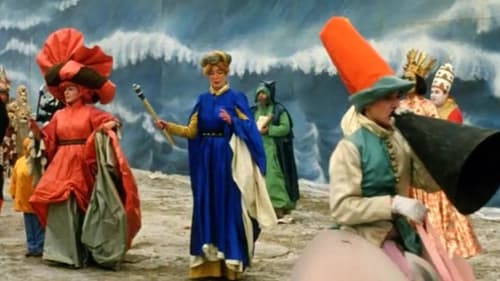
Director of Photography
Seven Women, Seven Sins (1986) represents a quintessential moment in film history. The women filmmakers invited to direct for the seven sins were amongst the world's most renown: Helke Sander (Gluttony), Bette Gordon (Greed), Maxi Cohen (Anger), Chantal Akerman (Sloth), Valie Export (Lust), Laurence Gavron (Envy), and Ulrike Ottinger (Pride). Each filmmaker had the liberty of choosing a sin to interpret as they wished. The final film reflected this diversity, including traditional narrative fiction, experimental video, a musical, a radical documentary, and was delivered in multiple formats from 16, super 16, video and 35mm.

Cinematography
Atalia is a 40-year-old widow who lost her husband in the Six-Day War and lives on a kibbutz with her adolescent daughter. Lonely and feeling outcast, she enters into a forbidden affair with her daughter's classmate, Matti, an idealistic 19-year-old rejected by the army.

Director of Photography
An unusual visit to a large, empty apartment. But is it empty or not? Maybe a family has lived there or is going to live there. Maybe a young girl is going to escape from there. Maybe some of the old-timers who lived there never left. The walls themselves tell the stories of the time passing by. - Fandor

Director of Photography
This film is based on the true story of Jean Bella, who served as an officer in the Belgian Marine while being convinced, from an early age, that he was in fact a woman. Director Jean-Pol Ferbus follows Jean Bella and makes him talk about his life, psychological and spiritual experiences and reveals the true poet who remained undisclosed for most of this person's life. The film ultimately isn't about transexuality but about loneliness one can experience when he/she feels very deeply that she/he belongs to the two sexes and this in a deep, almost religious, fashion, to such an extent that sexuality itself is being erased from one's life. Jean-Gina Bella is a woman in the body of a man who bravely lived a life on the sea, eventually fighting the elements, talking to God when lost on the immense solitary ocean. This testimony is a very touching and poetic one.

Cinematography
Two corrupt IDF officers who resale lands in the West Bank put pressure on a Palestinian family man.
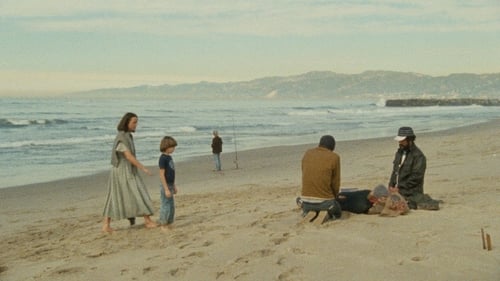
Director of Photography
After separating from the father of her son, a young French woman tries to find lodging and a fresh start in L.A. for herself and her son.
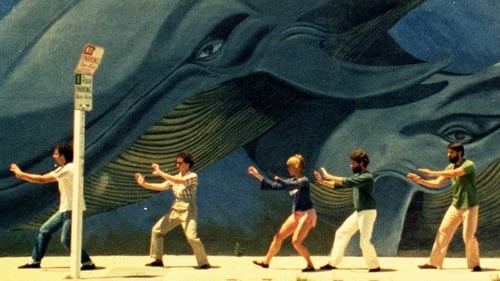
Cinematography
Venturing from Venice Beach to Watts, Varda looks at the murals of LA as backdrop to and mirror of the city’s many cultures. She casts a curious eye on graffiti and photorealism, roller disco & gang violence, evangelical Christians, Hare Krishnas, artists, angels and ordinary Angelenos.

Cinematography
Who is Milena whose arrival is announced to Sophie and Nicolas by postcard? The train from Prague brings for three weeks, the time of a visa, this young Czech and his bag stuffed with forbidden texts, marginal films and music. She will strive to make them known with the help of her new friends.

Director of Photography
They are in their thirties. They have now children, an appartment, a work, cars... and still have loves, dreams and passions. They will meet each other, leave each other, under the eye of their kids.
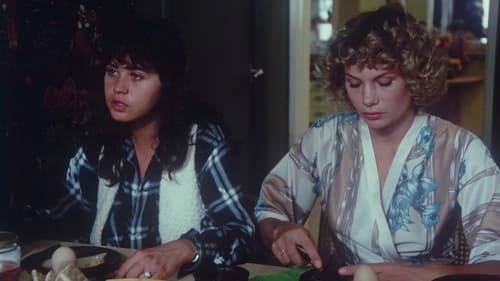
Director of Photography
A devoted yet stressed out housewife takes a holiday to relax, and falls in love with another woman: a guitar-playing hippie who lives in a commune.

Director of Photography
Vannina and Giacinto are a young married couple who live their relationship in an unequal way; while the girl is submissive to the will of her husband Giacinto, he sees in his bride only the personal object of his sexual satisfaction.
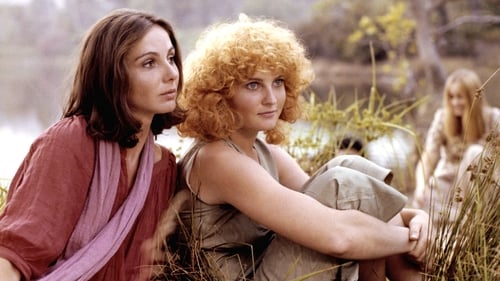
Assistant Camera
In this story of friendship and reproductive rights, 14 years in the relationship between two very dissimilar women are chronicled. Pauline is a middle-class city girl, at odds with her very conventional family. Suzanne is several years older, a country girl with two illegitimate children and another (whom she cannot support) on the way. Pauline loans Suzanne money for an abortion. At this point, the two separate and communicate mainly through postcards. Some years later, they meet at an abortion rally, and they have many adventures and stories to share with one another.
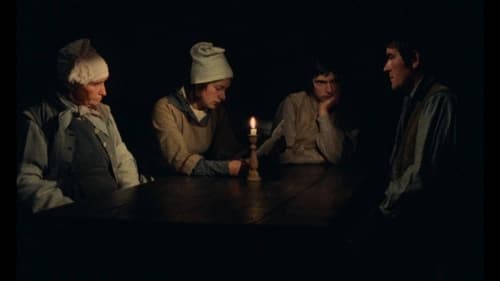
Cinematography
Based on documents compiled by leading French philosopher Michel Foucault, this unique and original film charts the gruesome events which took place in a Normandy village in 1835, when a young man, Pierre Rivière, murdered his mother, sister and brother before fleeing to the countryside. With a cast made up of real-life villagers from the area where the events took place, the detailed re-enactments and careful attention to the gestures of their ancestors serve to create an intense and sometimes disturbing atmosphere of hyper-realism. Details of the crime and of the trial that followed are told from varied perspectives, including the written confession of Pierre himself, and form a rich and complex narrative that interrogates the concepts of “truth” and “history”.

Director of Photography
Made at a time when Iran had a seemingly revolving door for incoming European directors and bottomless funding for their projects, Plaisir d'amour en Iran is a short, sort of love story between a handsome Iranian (Ali Raffi) and a visiting French woman (Valérie Mairesse). The film was shot at the Shah Masjed in romantic Esfehan.

Director of Photography
A young man is checked into a mental hospital for unexplained reasons.
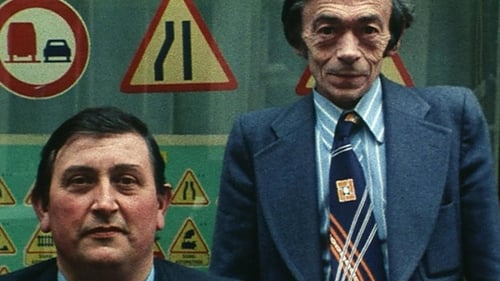
Director of Photography
An intimate portrait of the small shops and shopkeepers of the Rue Daguerre in Paris, a picturesque street that has been the filmmaker’s home for more than 50 years.

Director of Photography
Anna and Edith are colleagues at an insurance company. Their male chef uses the women's business success to his own advances. Anna's husband would prefer her to be at home. Anna and Edith become a couple, but it doesn't end with a romantic rendez-vous. Together, and with the help of their female colleagues, they want to improve their work conditions.








































